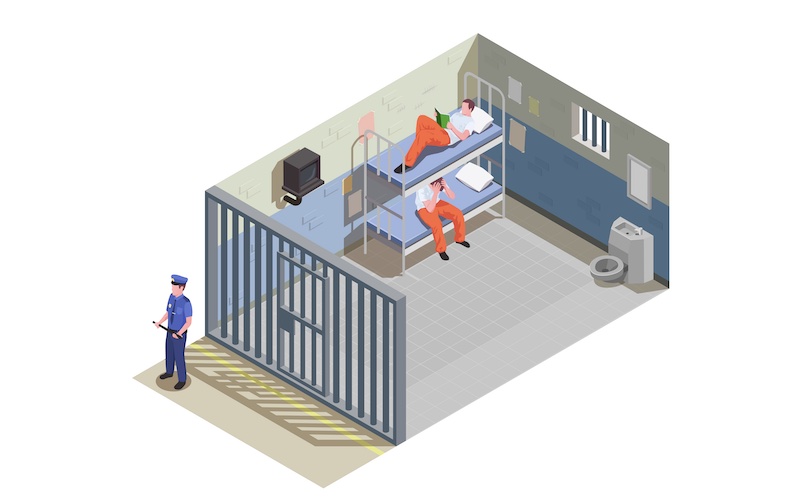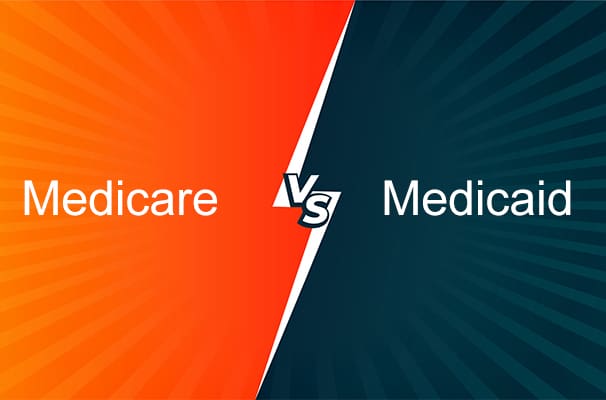When someone commits a crime, they might end up in either federal or state prison, depending on the nature of their offense. While both types of prisons serve the purpose of incarcerating individuals, they operate under different jurisdictions and have distinct characteristics. Let’s dive into what sets them apart and what you can expect from each.
Federal Prison
Management and Funding:
Federal prisons are managed by the Federal Bureau of Prisons (BOP), a branch of the U.S. Department of Justice. They are funded by the federal government, which often means better facilities and resources compared to state prisons.
Types of Crimes:
Inmates in federal prisons are typically those convicted of federal crimes. These include drug trafficking, white-collar crimes (like fraud and embezzlement), immigration offenses, and crimes that cross state lines. High-profile criminals, such as those involved in major financial scams, often serve their sentences in federal prisons.
Security Levels:
Federal prisons have five security levels: minimum, low, medium, high, and administrative. This system ensures that inmates are housed according to the severity of their crime and their behavior.
Inmate Population and Sentence Length:
Federal prisons generally have fewer inmates than state prisons. The sentences in federal prisons are often longer, reflecting the serious nature of federal offenses. Additionally, federal inmates are not eligible for parole, although they may earn reduced sentences for good behavior.
Rehabilitation Programs:
Federal prisons offer a range of rehabilitation programs, including educational and vocational training, substance abuse treatment, and psychological counseling. These programs aim to prepare inmates for successful reintegration into society.

State Prison
Management and Funding:
State prisons are managed by state governments and are funded by state tax revenues. The quality of management and facilities can vary significantly from one state to another, often depending on the state’s budget and priorities.
Types of Crimes:
State prisons house individuals convicted of violating state laws. These offenses often include violent crimes such as murder, rape, robbery, and assault. Because state laws vary, the types of crimes and sentences can differ widely across the country.
Security Levels:
State prisons typically have three security levels: minimum, medium, and maximum. Inmates are assigned to facilities based on the severity of their crime and their behavior while incarcerated.
Inmate Population and Sentence Length:
State prisons tend to be more crowded than federal prisons, with a higher number of inmates. Sentences in state prisons are generally shorter than those in federal prisons, but they can still be quite severe depending on the crime.
Rehabilitation Programs:
Like federal prisons, state prisons also offer rehabilitation programs, although the availability and quality of these programs can vary. Inmates might have opportunities for educational and vocational training, substance abuse treatment, and other programs aimed at reducing recidivism.
Key Differences Between Federal Prison And State Prison
- Management: Federal prisons are managed by the BOP under the DOJ, while state prisons are managed by individual state governments.
- Funding: Federal prisons typically have better funding and resources compared to state prisons.
- Types of Inmates: Federal prisons house inmates convicted of federal crimes, often non-violent white-collar crimes, while state prisons house inmates convicted of state crimes, often more violent offenses.
- Security Levels: Federal prisons have five security levels; state prisons have three.
- Sentence Length: Sentences in federal prisons are generally longer, and inmates are not eligible for parole.
- Inmate Population: Federal prisons have fewer inmates than state prisons.
- Rehabilitation Programs: Both offer programs, but the quality and availability can vary more in state prisons.
Finishing Touch
Understanding these differences can help individuals navigate the criminal justice system more effectively, whether they’re facing charges themselves or supporting a loved one through the process. If you ever find yourself in a situation where you need legal advice, consulting a knowledgeable attorney who understands both state and federal prison systems is crucial.





